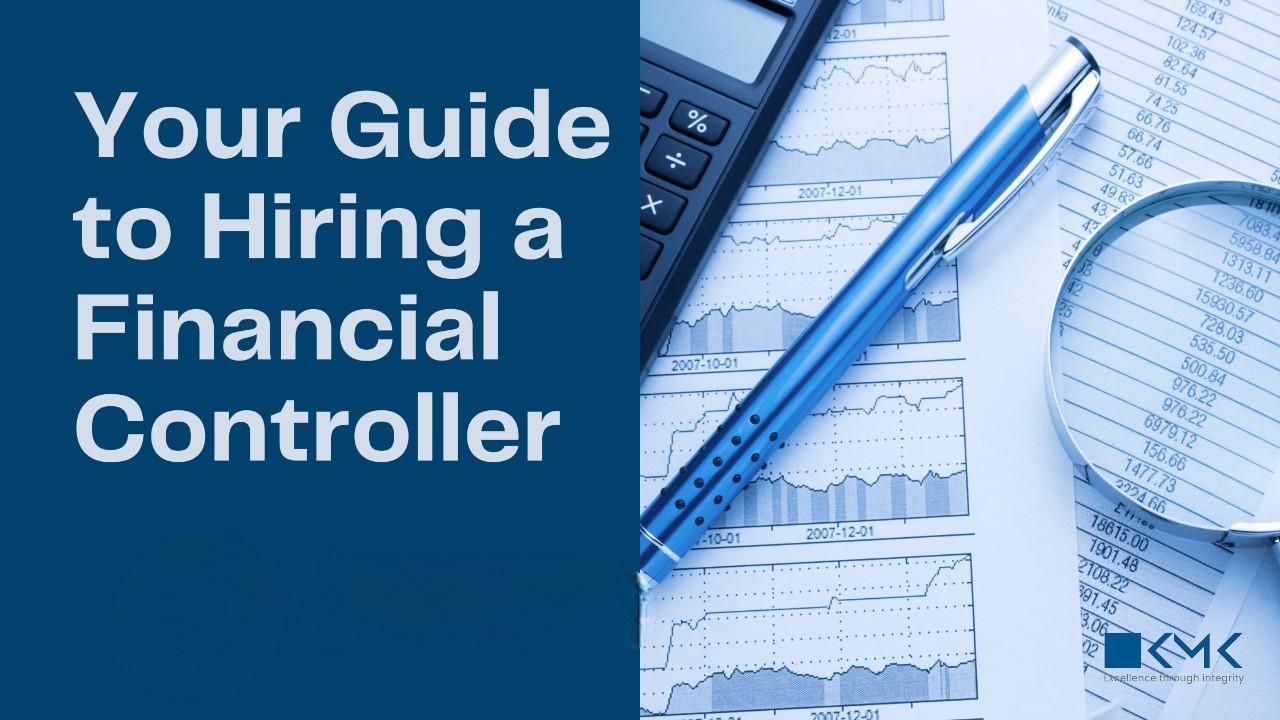Financial Controller or FP&A Head? 2025 Hiring Guide for Growing Businesses

As businesses grow, finance teams play a critical role in shaping direction, profitability, and operational efficiency. However, one of the most common questions growing companies face is: Should we hire a Financial Controller or an FP&A Head (Financial Planning & Analysis)?
Both roles are essential in different ways. But choosing the right one at the right stage of growth can significantly impact how well a company manages cash flow, forecasts financial performance, and supports strategic decision-making.
Understanding the difference between the two roles can be challenging, so businesses often search for clarity on fp&a manager vs financial controller responsibilities and business value. This guide simplifies that decision in a practical, business-focused way.
Understanding the Financial Controller Role
A Financial Controller is responsible for ensuring that the company’s financial operations are accurate, compliant, and efficiently managed. Think of the Controller as the backbone of day-to-day finance.
Core Responsibilities:
-
Managing bookkeeping and accounting processes
-
Overseeing monthly and annual financial closes
-
Ensuring compliance with financial regulations and tax laws
-
Preparing financial statements and detailed reports
-
Implementing internal financial controls
-
Managing audit processes
Controllers ensure the numbers are correct, the process is clean, and the business remains compliant.
When Businesses Typically Hire Controllers:
-
When bookkeeping has grown too complex to be handled by one accountant
-
When financial reporting errors are becoming costly
-
When audit readiness becomes necessary
-
When the business must demonstrate financial discipline to lenders or investors
If your financial records need structure, consistency, or compliance oversight, a Controller is the right hire.
Understanding the FP&A Head Role
The Head of FP&A focuses on planning, forecasting, and analyzing financial performance to guide strategy. This role asks: “Where is the business going and how do we make smarter decisions to improve it?”
Core Responsibilities:
-
Building forecasts, budgets, and rolling financial projections
-
Analyzing revenue streams, margins, and cost trends
-
Identifying growth opportunities and potential risks
-
Supporting department heads in performance planning
-
Presenting financial insights to leadership teams
-
Developing dashboards and performance metrics
Instead of looking backward at what has happened (like a Controller), FP&A leaders look forward at what will happen — and how to influence it.
When Businesses Typically Hire FP&A Leaders:
-
When the business needs better visibility into profit drivers
-
When forecasting accuracy affects investments or hiring decisions
-
When the leadership team needs clear financial data for strategy discussions
-
When scaling into new markets or product lines
If your business needs strategic financial insight, an FP&A Head is the right choice.
Key Differences at a Glance
| Category | Financial Controller | FP&A Head |
|---|---|---|
| Focus | Past & present | Future planning |
| Primary Role | Manage financial accuracy & compliance | Support strategic decision-making |
| Work Style | Detail-oriented, procedural | Analytical, insight-driven |
| Output | Financial reports, accounting controls | Forecasts, performance dashboards |
| Business Impact | Stability and compliance | Growth and profitability planning |
In short:
Controllers build financial stability.
FP&A builds financial strategy.
Which Role Comes First for Growing Companies?
Most growing businesses hire in this order:
-
Bookkeeper
-
Senior Accountant
-
Financial Controller
-
FP&A Head
However, the order can shift depending on your business model.
If your business is operationally complex:
Manufacturing, retail, construction, or logistics companies often need a Controller first to tighten financial processes.
If your business is fast-scaling or investor-driven:
SaaS, fintech, and venture-backed firms often need FP&A earlier to guide strategic decisions.
Signs You Need a Financial Controller Now
-
You’re experiencing month-end closing delays
-
Audits are stressful due to missing documentation
-
Cash flow reports are inconsistent or inaccurate
-
Vendor or payroll errors are increasing
-
Financial compliance requirements are growing
If financial operations feel messy or inconsistent, strengthening the foundation is the priority — meaning a Controller is likely the right fit.
Signs You Need an FP&A Head Now
-
Revenue growth is unpredictable or difficult to forecast
-
You’re preparing for fundraising, acquisition, or expansion
-
Leadership needs detailed performance insights for planning
-
You want to evaluate profitability across products or regions
-
Your budgets are static and not tied to performance drivers
If business decisions require better data and insight, FP&A will unlock strategic clarity.
Can You Have Both? Yes — and Growing Firms Eventually Do.
In mature finance teams:
-
The Controller ensures accurate data.
-
The FP&A Head turns that data into strategy.
Together, they elevate financial intelligence across the organization.
For many businesses, hiring both full-time is expensive, which is why outsourcing or virtual finance teams have become popular. These models allow businesses to access experienced Controllers and FP&A professionals on a flexible schedule and budget.
Final Thoughts
Choosing between a Financial Controller and an FP&A Head is not about which role is better — it’s about which your business needs right now.
If your financial systems and reporting need structure, accuracy, and compliance, hire a Financial Controller first.
If your business needs strategic guidance, forecasting, and data-driven planning, hire an FP&A leader.
Understanding your stage of growth, performance goals, and operational complexity will guide the right decision.
- AI
- Vitamins
- Health
- Admin/office jobs
- News
- Art
- Causes
- Crafts
- Dance
- Drinks
- Film
- Fitness
- Food
- Jocuri
- Gardening
- Health
- Home
- Literature
- Music
- Networking
- Alte
- Party
- Religion
- Shopping
- Sports
- Theater
- Wellness


